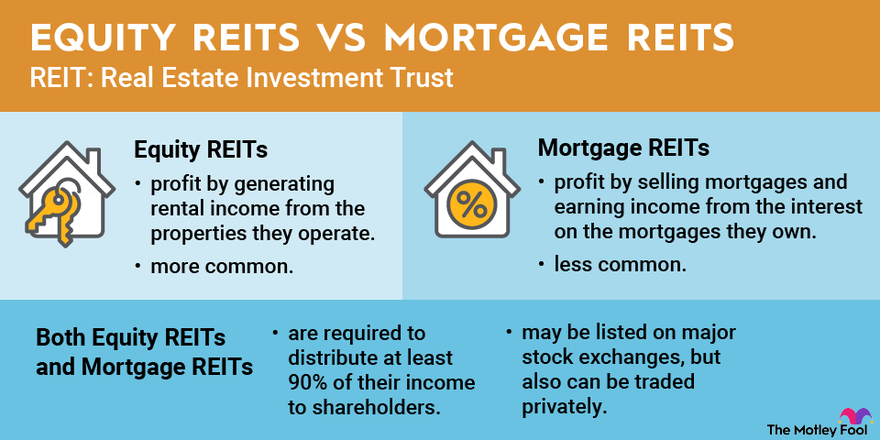Expert Guidance on Managing Equity Release Mortgages
Expert Guidance on Managing Equity Release Mortgages
Blog Article
Exploring the Different Kinds Of Equity Release Mortgages Available Today
Equity Release mortgages present various choices for house owners aged 55 and over. equity release mortgages. These financial items accommodate different demands and choices, enabling people to gain access to funds from their residential property. From lifetime mortgages to shared appreciation home mortgages, each type provides distinct advantages. Recognizing these options is important for making notified decisions. What aspects should one consider when selecting the most appropriate equity Release plan? The details that adhere to might drop light on this important subject
Recognizing Equity Release Mortgages
Equity Release home mortgages supply homeowners, normally those aged 55 and over, with a way to access the worth locked up in their property without needing to offer it. This economic alternative allows people to transform a portion of their home equity into cash money, which can be utilized for numerous purposes, such as home enhancements, paying off financial debts, or financing retirement.Equity Release can take different forms, but it essentially entails borrowing against the worth of the home while preserving possession. Homeowners can pick to get a round figure or a collection of smaller repayments, depending on their economic requirements and preferences.Additionally, the amount readily available for Release is affected by the residential or commercial property's worth, the home owner's age, and particular lending institution criteria. Overall, comprehending equity Release mortgages is necessary for property owners to make enlightened choices about touching right into their home's equity while considering the lasting effects.
Life time Mortgages
Life time home mortgages stand for one of one of the most preferred kinds of equity Release. This economic item permits homeowners, typically aged 55 or older, to borrow against the worth of their building while preserving possession. The finance, which is secured versus the home, builds up rate of interest with time yet does not call for month-to-month settlements. Instead, the funding and built up rate of interest are paid back when the homeowner passes away or moves into long-lasting care.Lifetime home loans supply flexibility, as customers can choose to obtain a round figure or select a drawdown center, accessing funds as needed. Notably, several plans come with a no-negative-equity warranty, guaranteeing that customers will certainly never owe even more than the worth of their home. This attribute supplies comfort, permitting individuals to appreciate their retired life without the concern of depleting their estate. Overall, life time mortgages function as a viable choice for those seeking financial backing in later life.
Home Reversion Program

Drawdown Lifetime Mortgages
While several home owners look for methods to access their wealth, drawdown life time home mortgages offer a flexible option that permits individuals to Release funds progressively. This sort of equity Release home mortgage allows home owners to obtain against the worth of their building while maintaining ownership. Unlike typical lifetime mortgages, drawdown strategies allow debtors to access a part of their equity upfront and withdraw extra funds as required, up to a fixed limit.This function can be especially useful for those who desire to manage their funds meticulously, as it decreases passion buildup by only charging interest on the quantities drawn. Furthermore, drawdown life time home loans often include a "no negative equity assurance," ensuring that debtors will never ever owe even more than their home's value. This choice matches retirees that want financial safety and adaptability, allowing them to satisfy unforeseen expenditures or maintain their lifestyle without having to offer their property.
Enhanced Lifetime Mortgages
Boosted Life time Home mortgages offer distinct advantages for eligible house owners looking for to Release equity from their residential or commercial properties. Understanding the qualification criteria is vital, as it identifies that can gain from these specialized financings. However, it is also important to assess the potential drawbacks linked with improved alternatives, guaranteeing an all-around point of view on their use.
Qualification Standards Described
Comprehending the eligibility requirements for Enhanced Life time Mortgages is crucial for possible applicants seeking to access the equity in their homes. Commonly, candidates should be aged 55 or older, as this age requirement is typical in the equity Release market. Property owners should have a residential property valued at a minimum limit, which can differ by lender. Notably, the building needs to be their primary home and in good problem. Lenders frequently analyze the house owner's health condition, as certain health and wellness conditions may boost qualification and benefits. In addition, applicants must not have existing substantial financial obligations secured against the residential or commercial property. Fulfilling these criteria enables people to explore Improved Life time Home mortgages as a practical alternative for accessing funds bound in their homes.
Benefits of Boosted Home Mortgages
After clarifying the eligibility standards, it comes to be apparent that Improved Life time Home mortgages offer a number of considerable benefits for read this post here homeowners seeking to leverage their residential property equity. Mainly, they offer access to a bigger loan amount compared to conventional lifetime home loans, profiting those with health and wellness problems or age-related aspects that raise their life span risk. This enhanced loaning capacity permits home owners to fulfill numerous economic demands, such as home renovations or retired life costs. Furthermore, these mortgages generally come with flexible settlement alternatives, making it possible for debtors to manage their finances better. The no-negative-equity warranty additionally ensures that house owners will never owe greater than their home's value, providing tranquility of mind. Generally, Improved Life time Home loans present an engaging choice for eligible home owners seeking financial remedies.
Prospective Downsides Thought About
While Enhanced Life time Mortgages supply many benefits, prospective drawbacks call for careful factor to consider. One significant worry is the impact on inheritance; the equity launched reduces the value of the estate entrusted to beneficiaries. Furthermore, these home mortgages can accumulate significant interest gradually, leading to a substantial debt that may go beyond the original funding quantity. There may likewise be constraints on residential or commercial property adjustments or rental, restricting homeowners' versatility. Boosted items frequently need certain health and wellness problems, suggesting not all homeowners will qualify. Managing the charges and fees associated with these mortgages can be complex, possibly leading to unexpected costs. Because of this, people must completely evaluate their circumstance and speak with financial advisors prior to proceeding.
Shared Gratitude Mortgages
Shared Appreciation Home mortgages stand for a distinct financial setup that permits property owners to access equity while sharing future property worth boosts with the loan provider. This approach supplies prospective benefits such useful content as lowered regular monthly payments, however it also features disadvantages that must be very carefully thought about. Recognizing the eligibility needs is necessary for those interested in this alternative.
Concept Review
Equity Release home mortgages, particularly in the type of common gratitude home mortgages, provide home owners a distinct economic solution that enables them to accessibility funds by leveraging the value of their building. In this arrangement, a loan provider gives a funding to the homeowner, which is usually settled through a share of the home's future admiration in worth. This means that when the homeowner sells the residential property or dies, the lender obtains a percentage of the enhanced value, instead of simply the first loan amount. Shared gratitude home loans can be appealing for those seeking to supplement their revenue or money significant expenses while keeping ownership of their home. The economic effects of common recognition should be thoroughly considered by potential borrowers.
Drawbacks and advantages
Shared gratitude home mortgages can supply considerable economic advantages, they also come with remarkable disadvantages that potential debtors ought to take into consideration. These home loans allow house owners to access equity in their homes while sharing a section of any type of future appreciation with the loan provider. This setup can be useful throughout times of increasing property values, supplying substantial funds without month-to-month repayments. The major drawback is the potential loss of equity; house owners might finish up with considerably minimized inheritance for successors. In addition, the complexity of the terms can result in misunderstandings pertaining to settlement obligations and the percentage of recognition owed. It is crucial for borrowers to weigh these elements thoroughly before committing to a common recognition mortgage.

Eligibility Demands
What requirements must house owners satisfy to get a shared gratitude mortgage? Primarily, prospects have to go to least 55 years old, assuring they are within the target group for equity Release products. In addition, the building needs to be their main residence and typically valued over a specified minimum threshold, usually around ? 100,000. Lenders also analyze the house owner's monetary circumstances, consisting of earnings and outstanding financial debts, to determine they can manage the home loan responsibly. Notably, the home has to remain in great condition and without significant legal encumbrances. Home owners ought to additionally have a clear understanding of the terms, including just how gratitude will certainly be shared with the loan provider upon sale or transfer of the residential or commercial property, as this influences overall returns.
Selecting the Right Equity Release Option

Often Asked Questions
What Age Do I Required to Be for Equity Release?
The age need for equity Release typically begins at 55 for many strategies. Nevertheless, some companies might use options for those aged 60 and above, mirroring varying terms based upon individual conditions and lending institution policies.
Will Equity Release Impact My Inheritance?
Equity Release can affect inheritance, as the quantity borrowed plus passion reduces the estate's worth. Successors may receive less than expected, depending on the residential property's gratitude and the overall financial debt at the time of passing.
Can I Move Home With Equity Release?
The inquiry of relocating house with equity Release arises often. Normally, people can transfer their equity Release plan to a new residential property, yet specific terms might use, requiring assessment with the loan provider for advice.
Exist Costs Related To Equity Release Mortgages?
Charges related to equity Release home mortgages can consist of setup costs, valuation fees, and legal costs. Additionally, there may be very early settlement costs, which can affect the total price and economic effects for the consumer.
How Does Equity Release Effect My Tax Obligation Circumstance?
Equity Release can influence one's tax scenario by potentially raising taxed income, as launched funds are considered resources. It normally does not sustain immediate tax obligation liabilities, making it vital to seek advice from an economic consultant for tailored guidance.
Verdict
In summary, the variety of equity Release mortgages readily available today offers home owners aged 55 and over multiple pathways to access their building's value - equity release mortgages. Whether going with a life time home mortgage, home reversion strategy, or other alternatives, each choice provides distinctive advantages tailored to individual financial requirements. Cautious factor to consider and appointment with a financial advisor are vital to ensure the selected equity Release option straightens with individual objectives and economic conditions, inevitably promoting educated decision-making for a safe and secure economic future. Equity Release home loans present different options for property owners aged 55 and over. Equity Release home mortgages give home owners, commonly those aged 55 and over, with a method to access the worth linked up in their home without requiring to offer it. Enhanced Lifetime Home mortgages use distinctive benefits for eligible house owners looking for to Release equity from their properties. Equity Release home loans, particularly in the kind of shared appreciation home mortgages, provide homeowners a special financial solution that enables them to access funds by leveraging the worth of their home. In summary, the range of equity Release home loans available today uses property owners aged 55 and over numerous pathways to access their building's value
Report this page